Single Central and South American coffee beans recommend Colombia Brazil Panama coffee which tastes good?
Central America generally refers to the strip of central America south of Mexico and north of the Panama Canal, also known as the Central American Isthmus, including Guatemala, Belize, El Salvador, Honduras, Nicaragua, Costa Rica and Panama, all of which produce coffee.
There is also a way to divide the Caribbean and the island countries and territories of the West Indies into Central America, where many countries and regions produce coffee, such as Jamaica, which produces Blue Mountain Coffee, as well as Cuba, Haiti, Dominica and Puerto Rico.
In the coffee world, the division is slightly different: "Central American coffee" includes Mexico and the seven countries of the Central American isthmus, while Caribbean coffee is distinguished by "Caribbean island coffee".
The topography of the isthmus in China and the United States is mainly plateaus and mountains, extending along the Pacific coast in the middle part of the Cordillera mountain system, volcanic zone along the Pacific coast in the west, and hot and humid climate facing the Caribbean Sea and the Gulf of Mexico in the east. the mountain basin has a mild climate and thrives of flowers and trees. These have created a unique microclimate in many parts of the mountains of Central America, coupled with the accumulation of volcanic ash and fertile soil, providing a good foundation for the production of high-quality coffee.
Colombian Coffee
Palate: full viscosity, caramel sweetness, supple and pleasant fruit acid.
-Origin: Medellin, Armenia (Armenia) and Manisales (Manizales)
Recommended coffee beans:
Columbia Huilan (deep baked in water)-full of acid, caramel, sweet nuts, chocolate, red wine flavor, admirable fruit flavor
Colombian bourbon pointed Leroy (refined water washing, natural drying)-dark chocolate and ripe fruit aromas, caramel and nutty (cashew) flavor, very rich
Santa santa rita, Colombia (moderate washing)-sweet in acid, low in bitterness, nutritious, unique sour and mellow, sour, bitter and sweet match well
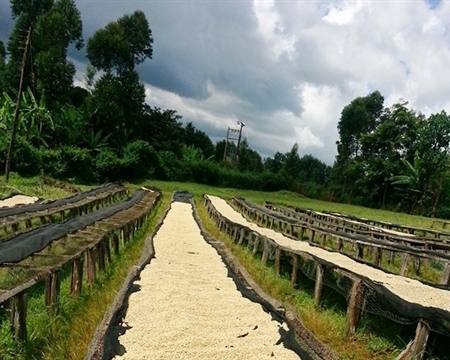
Guatemalan coffee
Taste: full-bodied, rich taste, with tobacco flavor, mellow slightly charcoal roast flavor
-Origin: Antigua (Antigua)
Recommended coffee beans:
Antigua La Capra Chateau Bourbon (red wine treatment)-the fruit flavor of white grapes, the aroma of rose tea, soft acidity and sweet black sugar, very full texture.
Antigua Huashen Manor bourbon A2 (medium baked in water)-aromas of lemon peel, vanilla biscuits, nutty and cocoa flavors, sweet caramel, soft acidity, smooth and solid taste.
Incht Manor Vivette Nan Fruit (moderately deep washed)-elegant floral and orange peel aromas, with creamy and nutty flavours of macadamia fruits.
Incht Manor Pandora Pacamara (moderately deep washing)-rich floral and honey flavors, juicy peach and citrus flavours.
Costa Rica
Taste: full-bodied, mild taste, ideal acidity, unique and strong aroma
-Origin: Tarrazu, Juan Venas (JuanVinas,PR), Tulnon (H.Tournon), Vidmir (Windmill,SHB), Mondibelo (Montebello) and Santa Rosa (SsntaRosa)
Recommended coffee beans:
Tara pearls produce suntanned pearls from St. Roman's processing plant-creamy texture, with fermented flavors and sweet and sour flavors of ripe fruit, coffee cherries and chocolate aftertaste.
Tara Pearl Diamond Villa SHB Kaddura (moderate sun)-soft orange notes, toast, caramel cocoa sweet, clean taste
Central Valley Fire Phoenix Manor SHB (red honey treatment)-sweet and sour lemon, delicate sour and soft texture, balanced taste of red honey treatment, sweet caramel and chocolate flavor at the end, and a hint of black tea
Verasa Vera in the western valley of Darika (moderate sun)-soft, delicate and bright acidity, coffee, cherry and grape flavor, sun wine mixed with chocolate flavor
Panama
Palate: clean and fresh taste, strange fruit flavor and aroma, exudes elegant and charming flower-like perfume aroma, mild, clean and balanced, long-lasting, lively and rich fruit fragrance
-Origin: Boquet, Bolkambaru Coffee (Cafe Volcan Baru)
Recommended coffee beans:
SHB Kaddura, Manor Ireta, Panama-intense creamy aromas and sweet honey with a nutty finish of roasted almonds and macadamia fruits, soft acidity, soft texture and warmth
Caesar Louis Manor in Poquet boquete, Panama (washed and sunburned)-floral, slightly sour citrus, clean and bright taste
Panamanian Manor Rose Summer Geisha Aristar Poquette Baru Volcano (washed)-charming aromas of sweet-scented osmanthus and orange peel, sweet and sour citrus and pineapple, compound fruit flavor, tail vanilla aftertaste, rich and complex layers from hot to cool
Panamanian Hartman honey treats Alida (moderately light honey treatment)-flavors of figs and white grapes, soft acidity, full-bodied maple syrup and honey sweetness.
El Salvador
Palate: sour, lively and tricky, sometimes biscuit, sometimes fruity, thick and greasy.
-Origin:, Pipil, Pacamara
Recommended coffee beans:
El Salvador Ataisi Manor Micro-batch washing Pacamara Pacamara (moderate sun exposure)-nut chocolate, passion fruit sweet and sour, cream chocolate, strawberry aftertaste, nuts
El FincaHimalaya Himalayan Manor Red bourbon (moderate half-sun)-red wine with acidity, plums, brown sugar and lingering finish
Hot spring honey treatment of Salares Manor in El Salvador (deep roasting in honey treatment)-Hot spring coffee is very clean, rich fruit aroma, caramel and nutty flavor, low acidity and soft taste
Brazil
Palate: low sour, nutty, sweet chocolate and mellow, but slightly woody and earthy, not obvious floral and orange aromas.
-Origin:
Santos (Santos), Bahia (Bahia), Cerrado (Hirado), Mogiana (Mojiana)
Mexico: Coatepec, Huatusco, Orizaba, Maragogype, Tapanchula, Huixtla, Pluma Coixtepec, Liquidambar MS
Recommended coffee beans:
Minas bourbon, South Brazil (moderate half-sun)-fried melon seeds, mellow and full, dark chocolate, sweet aftertaste
Bourbon Santos, Brazil (moderate)-multiple flavors, low acidity, taste lubrication
Brief information and reasons for the selection of four types of coffee
Hartmann washes Rose Summer Hartman Wahed Geisha
Producing area: Panama,Volcan, Finca Hartmann, Walken, Panama (Santa Clara, Chiri Province)
Product: rose summer Geisha
Haiba: 1260-1800masl
Treatment method: washing Washed
Reason for being selected: sun-treated Rose Summer has been very popular in recent years because of its charming flavor and complex and changeable levels. The choice of Hartman Manor to wash rose summer is to share with you the typical characteristics of Panamanian roses: charming floral, citrus, berry and black tea aromas. These qualities, this bean has a very high level of presentation, does not need much tasting experience, but also easy to feel her bright citrus sweet and silky berry sweet.
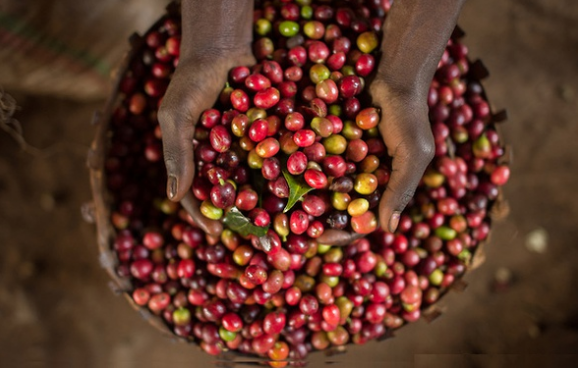
2001 Los 3 Potros Honey Pacamara
Producing area: El Salvardo, Apaneca Ilamatepec mountain range, Finca Tres Potros, El Salvador
Farmer: CARLOS MENDEZ FLOREZ
Variety: Pakamara Pacamara
Haiba: 1400-1500masl
Treatment method: honey-treated Honey
Reason for selection: this bean has the typical characteristics of high-quality Pacamara flavor and high mellow thickness; in addition to bright fruit acid and syrup-like sweetness, it also has a variety of changes, such as apricot, tropical fruit, cream, spice sweetness and so on. The Pacamara ranked second and third in the sun honey treatment group in the 2016 "Best El Salvador" competition.
Li Mona CS90 Red Honey Limonar Red Honey
Producing area: Guatemala Huehuetenango Finca El Limonar of Vivette Nan Gomona Manor in Guatemala
Batch: CS90
Varieties: Luojiu, bourbon, Kaddura Rojo& Bourbon& Caturra
Haiba: 1600-1750masl
Treatment method: Hongmi Red Honey
Certification: FTO Fair Trade and Organic Certification
Reason for selection: compared with the January issue of Toro Valley Yellow Honey, this glass Mona red mellow is thicker, has the sweetness of ripe cherries when hot, and has a long taffy aftertaste.
Black Soul Alma Negra
Producing area: Costa Rica, Central Valley-Sabanilla De Alajuela Las Lajas Estate of La Lajas Manor in the Central Valley of Costa Rica
Products: Kaddura, Kaduai Caturra & Catuai
Haiba: 1300-1500masl
Treatment: Natural in the sun
Grade: SHB
Reason for selection: Lajas has two kinds of sun treatment, which is determined by the number of turns in the process:
Black Pearl (Perla Negra): dry in an elevated bed and turn normally
Black Soul (Alma Negra): dry in an elevated bed, turning only a few times a day
"Black Soul" has less turning times and higher degree of fermentation than "Black Pearl", but it is also more likely to fail. Under the careful treatment of Lajas, this "Black Soul" has become the best of sun-dried beans with rich flavor, thick and round taste and long tail. Lively fermented grape aromas combine with the full sweetness of ripe tropical fruits.
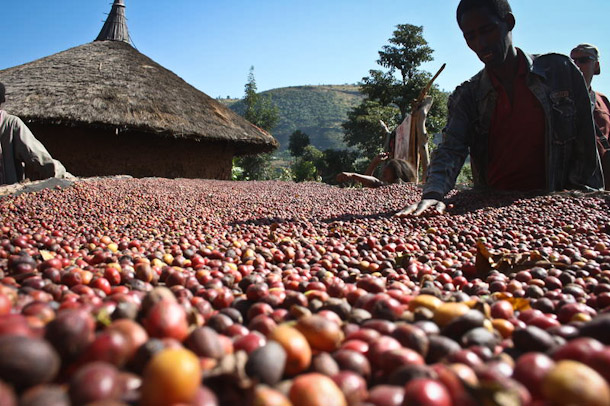
Rose Summer and Pakamara
Rose summer
It is generally believed that the source of Rose Summer is Gesha, a small town in western Ethiopia, which was first discovered by former British Ambassador Richard Whalley. The variety was sent to Kenya and then to the Institute in Tanzania. Costa Rica introduced Rose Summer from Tanzania in 1953 and Don Pachi Serracin brought the first Rose Summer to Panama in 1963.
Rose has been cultivated in Central America for more than 50 years, but it has been unknown for many years. The rose tree species is not handsome, the vertical spacing of each branch is larger than that of ordinary coffee trees, and the distance between branches is also larger than that of other trees, which means that the blossom and fruit are not dense enough, so they belong to low-yield varieties, so they are considered to have low economic value. it is usually arranged to act as a windbreak tree on the periphery of the coffee tree.
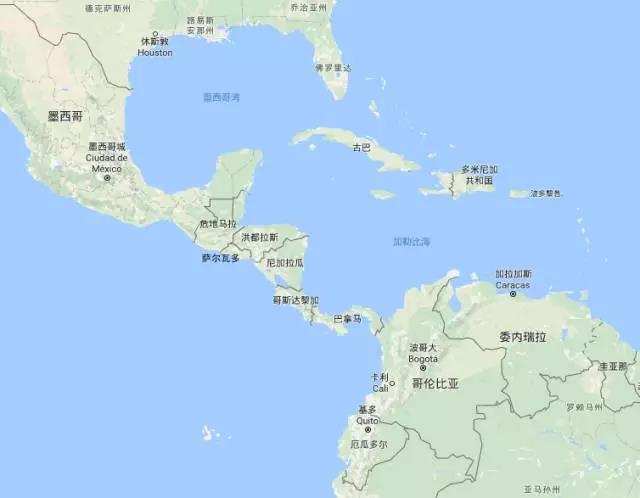
Important Notice :
前街咖啡 FrontStreet Coffee has moved to new addredd:
FrontStreet Coffee Address: 315,Donghua East Road,GuangZhou
Tel:020 38364473
- Prev
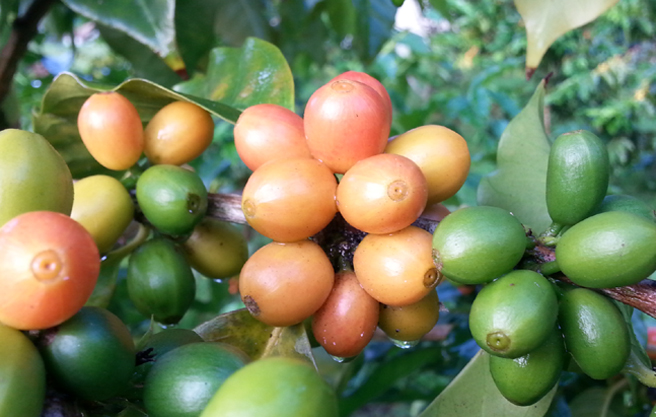
A brief introduction to the flavor of coffee beans in Central and South America
For professional baristas, please follow the coffee workshop (Wechat official account cafe_style) Central America generally refers to the narrow strip of central America south of Mexico and north of the Panama Canal, also known as the Central American Isthmus, including Guatemala, Belize, El Salvador, Honduras, Nicaragua, Costa Rica and Panama, all of which produce coffee.
- Next

Description of flavor and flavor of coffee beans washed with magnolia in La Minita, Costa Rica
For the exchange of professional baristas, please follow the coffee workshop (Wechat official account cafe_style) La Minita La Magnolia country: Costa Rica: Sanshui River altitude: 1200-1650 m treatment: washing grade: SHB variety: Kaddura, Kadui Costa Rica Laminita magnolia magnolia coffee is produced in the vicinity of the Irazu volcano, this
Related
- Detailed explanation of Jadeite planting Land in Panamanian Jadeite Manor introduction to the grading system of Jadeite competitive bidding, Red bid, Green bid and Rose Summer
- Story of Coffee planting in Brenka region of Costa Rica Stonehenge Manor anaerobic heavy honey treatment of flavor mouth
- What's on the barrel of Blue Mountain Coffee beans?
- Can American coffee also pull flowers? How to use hot American style to pull out a good-looking pattern?
- Can you make a cold extract with coffee beans? What is the right proportion for cold-extracted coffee formula?
- Indonesian PWN Gold Mandrine Coffee Origin Features Flavor How to Chong? Mandolin coffee is American.
- A brief introduction to the flavor characteristics of Brazilian yellow bourbon coffee beans
- What is the effect of different water quality on the flavor of cold-extracted coffee? What kind of water is best for brewing coffee?
- Why do you think of Rose Summer whenever you mention Panamanian coffee?
- Introduction to the characteristics of authentic blue mountain coffee bean producing areas? What is the CIB Coffee Authority in Jamaica?

